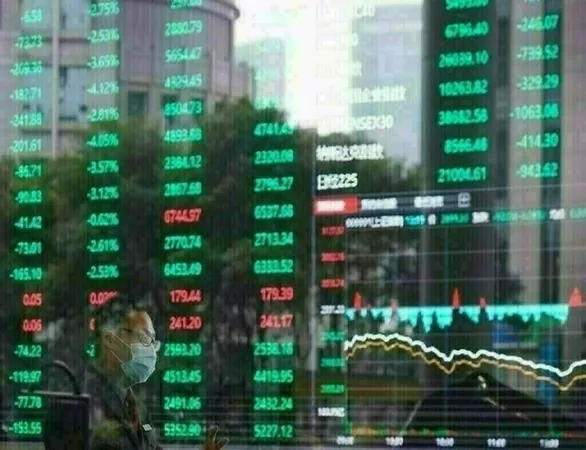
Hong Kong Stocks Plunge Amid Disappointing China Data: What Does It Mean for Investors?
2024-09-16
Hong Kong's Stock Performance
Hong Kong's financial market faced a notable decline as the Hang Seng Index dipped by 0.29% to reach 17,318.16 during the midday break. H-shares, which represent Chinese companies listed in Hong Kong, followed suit, falling 0.35% to settle at 6,049.99.
Market Pause for Mid-Autumn Festival
With mainland stock and bond markets closed for the Mid-Autumn Festival, trading will not resume until September 18. Interestingly, Hong Kong's markets will also be closed on the same date, creating a pause in trading activity.
Movers and Losers
Among the movers on the Hang Seng, New World Development emerged as the leading gainer, witnessing a rise of 2.49%. In stark contrast, Zhongsheng Group Holdings, a car dealership, was the biggest loser, experiencing a drop of 5.21%. Other notable losers in the H-share segment included J&T Global Express, which plummeted 7.67%, followed by China Resources Land (down 3.98%) and Longfor Group Holdings (declining 3.74%).
Underlying Economic Factors
The downturn can largely be attributed to alarming data released over the weekend indicating that new home prices in China fell by 5.3% year-over-year in August. This decline has dashed hopes for a recovery despite various supportive measures enacted by the government. Additionally, industrial output in China has also slumped to a five-month low, igniting speculation that further stimulus may be necessary to hit Beijing's annual growth targets.
Trading Volume and Investor Sentiment
In terms of trading volume, around 483.54 million shares changed hands on the Hang Seng, amounting to approximately 19.1% of the market’s average over the past 30 days. This suggests a cooling investor sentiment as concerns over economic stability loom large.
Hong Kong's Interbank Rates
Meanwhile, interbank rates in Hong Kong have hit their lowest levels in several years. Analysts suggest this decline is influenced by expectations of decreasing U.S. interest rates, combined with high cash reserves and a growing reluctance among investors to commit to Hong Kong equities.
Looking Ahead for Investors
For investors keeping a close eye on the region, these developments serve as a crucial reminder of the delicate balance of economic factors at play and the potential need for strategic adjustments amidst rising uncertainties. Will Hong Kong's resilience be tested further, or will it bounce back with renewed vigor? Stay tuned for updates!



 Brasil (PT)
Brasil (PT)
 Canada (EN)
Canada (EN)
 Chile (ES)
Chile (ES)
 España (ES)
España (ES)
 France (FR)
France (FR)
 Hong Kong (EN)
Hong Kong (EN)
 Italia (IT)
Italia (IT)
 日本 (JA)
日本 (JA)
 Magyarország (HU)
Magyarország (HU)
 Norge (NO)
Norge (NO)
 Polska (PL)
Polska (PL)
 Schweiz (DE)
Schweiz (DE)
 Singapore (EN)
Singapore (EN)
 Sverige (SV)
Sverige (SV)
 Suomi (FI)
Suomi (FI)
 Türkiye (TR)
Türkiye (TR)